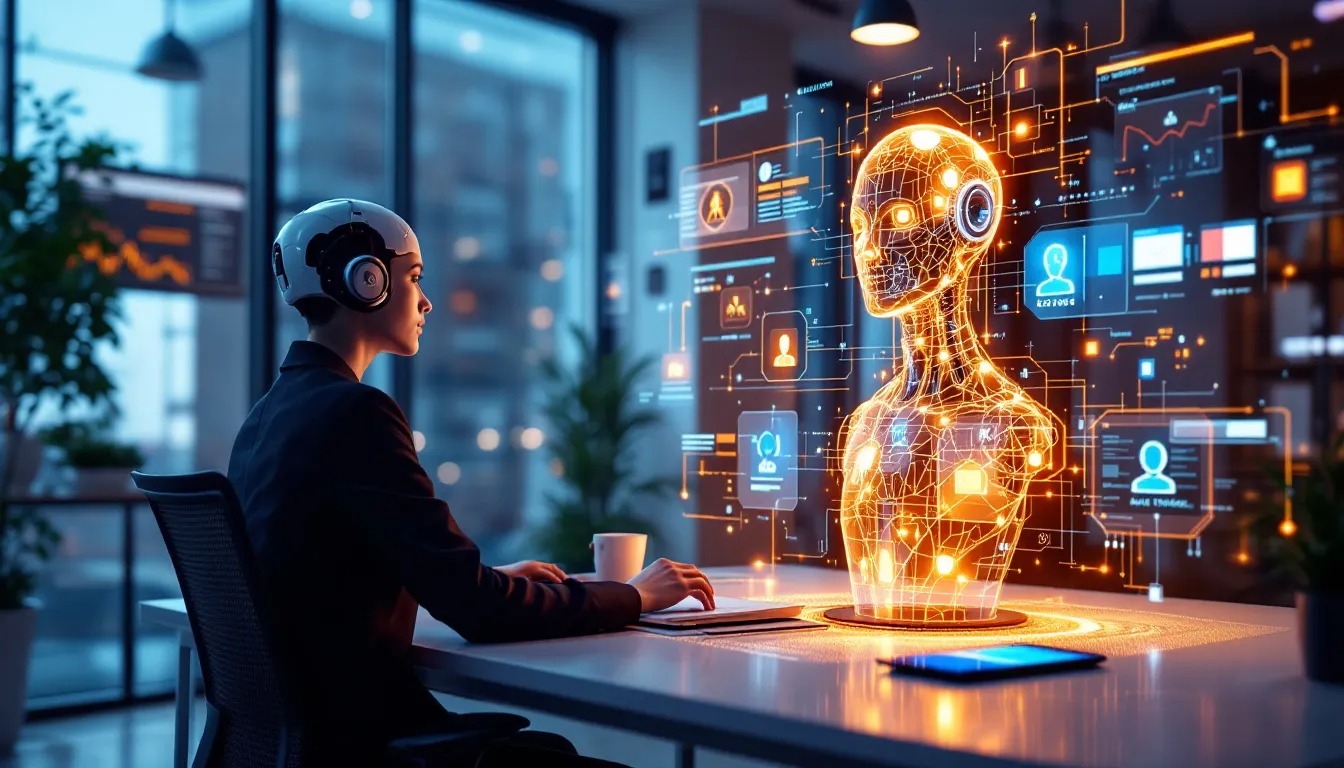Artificial Intelligence (AI) agents are rapidly transforming the way we interact with technology and how businesses operate. But what exactly are No-Code Workflow Automation, and why are they so important?
What Are AI Agents?
An AI agent is a software entity that can perceive its environment through sensors, make decisions based on that information, and act autonomously to achieve specific goals. Unlike traditional software that follows fixed rules, AI agents can learn, adapt, and improve their performance over time.
These agents use techniques from machine learning, natural language processing, and computer vision to understand complex data and respond appropriately.
Types of AI Agents
-
Simple Reflex Agents
These agents act only on the current input, reacting to specific conditions without memory of past states. For example, a thermostat that turns the heating on or off based on temperature readings. -
Model-Based Reflex Agents
They maintain an internal model of the environment, allowing them to handle more complex situations by considering both current input and historical data. -
Goal-Based Agents
These agents take actions to achieve specific goals. For example, a delivery drone plans a route to deliver a package efficiently. -
Utility-Based Agents
They evaluate multiple options and choose the one that maximizes a defined utility function, balancing different factors to make optimal decisions. -
Learning Agents
These agents improve their behavior based on past experiences and feedback, adapting to new challenges without human intervention.
Applications of AI Agents
-
Virtual Assistants: Siri, Alexa, and Google Assistant act as AI agents by understanding user commands, answering questions, and managing schedules.
-
Autonomous Vehicles: Self-driving cars use AI agents to navigate safely in dynamic environments.
-
Customer Support: Chatbots handle routine queries, providing 24/7 support.
-
Healthcare: AI agents assist in diagnostics and personalized treatment recommendations.
-
Finance: Automated trading systems analyze market data and execute trades in milliseconds.
Benefits of AI Agents
-
Automation of Repetitive Tasks: Freeing human workers to focus on creative and strategic activities.
-
Real-Time Decision Making: Agents can process data quickly and respond instantly to changing conditions.
-
Scalability: AI agents can manage large volumes of data and tasks efficiently.
-
Personalization: They can tailor services to individual user preferences.
Challenges and Considerations
Despite their advantages, AI agents also present challenges:
-
Ethical Concerns: Ensuring transparency and fairness in automated decisions.
-
Security Risks: Protecting AI systems from hacking and misuse.
-
Dependence on Data Quality: Poor or biased data can lead to incorrect outcomes.
-
Regulation and Control: Defining legal frameworks for autonomous agents.
The Future of AI Agents
As AI research advances, agents will become even more sophisticated, capable of collaborating with humans and other agents seamlessly. We may soon see AI agents that handle complex problem-solving, creativity, and emotional intelligence — changing industries from education to entertainment.


